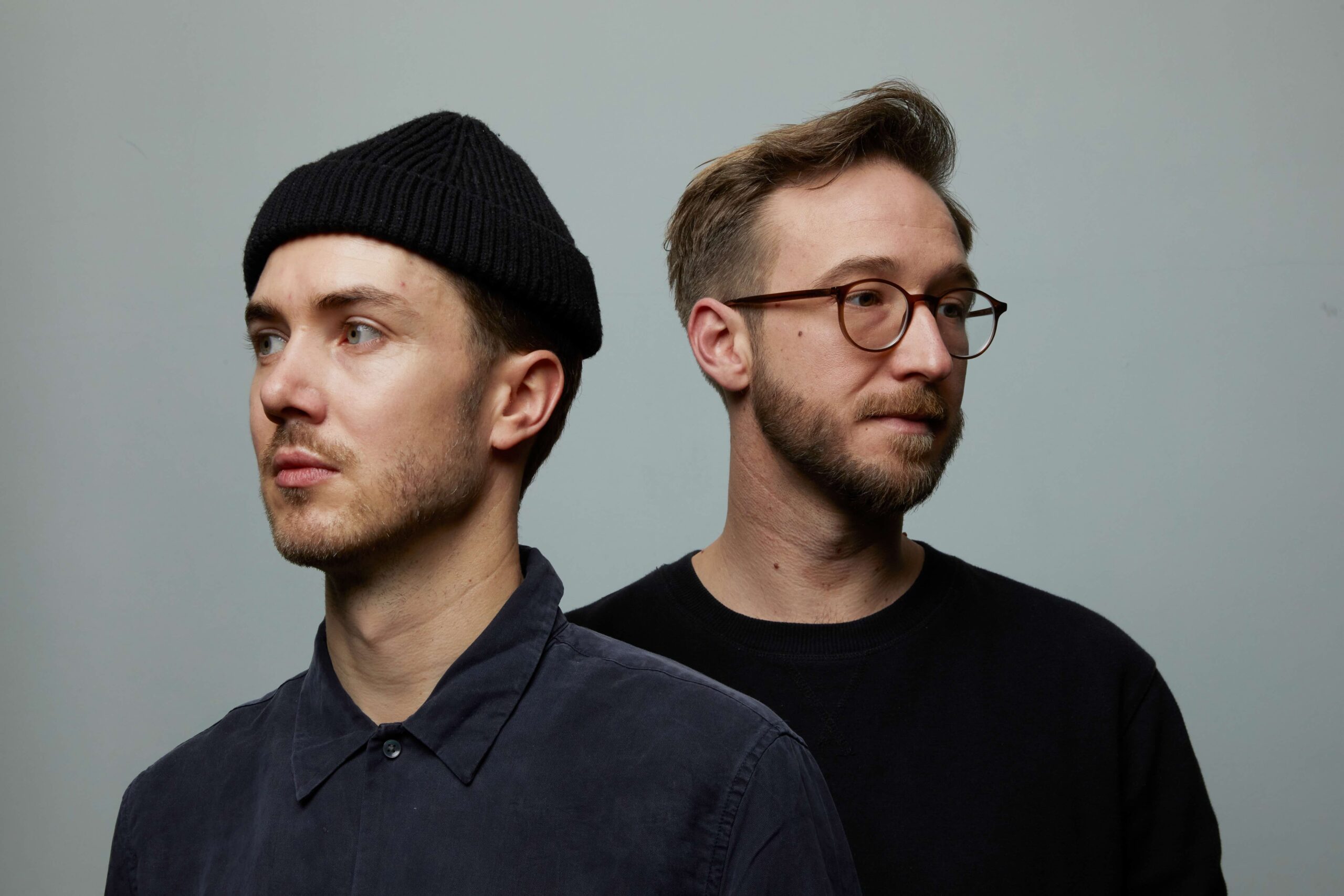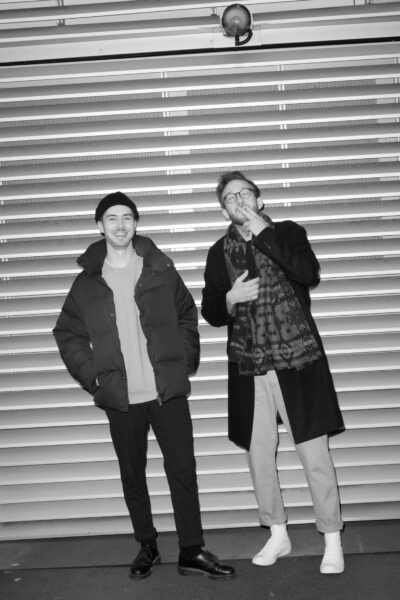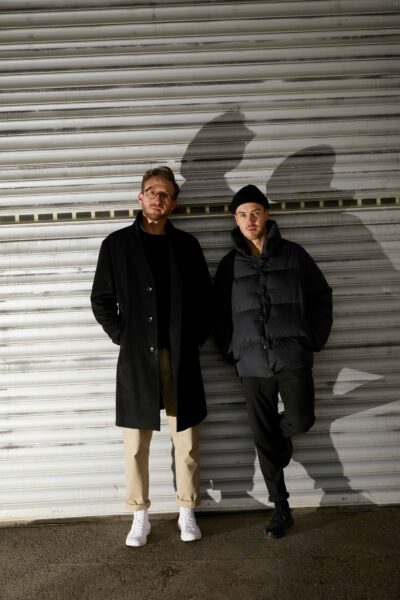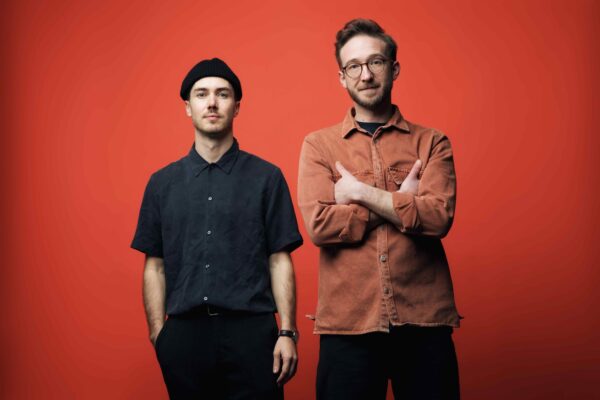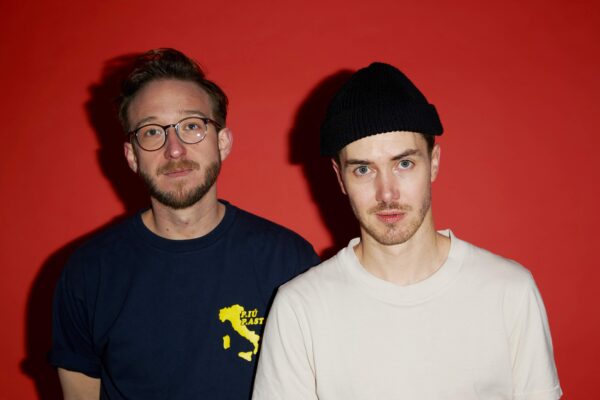We fired off some questions to Munich/Berlin-based duo COEO as they head to Jaeger for Schmooze and Brus this Friday and talked about origins, Munich and their keenness for Djing.
Florian Vietz and Andreas Höpfl are COEO and they have been making music together since their teens in Munich. They started making an impression in the age of the music blog, and their tracks like “Get Down” hit an immediate nerve with their deep, luxurious sound capturing a zeitgeist that dominated the dance floors at that time.
As the time went on their music matured, but never losing touch with that youthful charm that they’ve cultivated early on, as they folded elements of Disco and Jazz into later productions. Their long standing relationship with Munich-based record label Toy Tronics, have provided a consistent platform for releases from the duo with labels like Razor and Tape and Shall not Fade also flocking to their music to break off a piece of COEO for themselves.
Their latest record “Rush Hour” finds the duo in an energetic furore, charting a course for bigger rooms. An uplifting melody bounces between tireless beats as strings smooth out the arrangement. The duo’s history with 90’s Hip Hop and a legacy of Georgio Moroder and Donna Summer in Munich have coalesced around a distinctive sound for the pair, built on the foundation of those earliest releases.
Their work in the studio has built bridges to the world‘s most sought after DJ booths and as DJs COEO are equally adept, garnering a reputation today as one of the most enigmatic DJ duos out there. They’ll arrive at Schmooze and Brus this week and we took the opportunity to find out more about their early days, their relationship with Toy Tonics and the future of COEO.
Hey guys and thank you for taking the time to talk to us. I’ve read some interviews and I know you were friends long before COEO. What was the catalyst for you to start working on music together?
Florian: When you are young you are full of energy. We wanted to be creative and start our own project. Everything you see on TV or hear on the radio is so far away, but when you start listening to underground hip hop or electronic music you realise that this is music by young people and for young people and you can be part of that scene. We wanted to be like our role models and I think this was the catalyst of starting to make music.
Andreas: And also our acquaintance with a crew called Scrape Tactitions, who were very successful in the turntable championships- the ITFs, International Turntablist Federation- played a big role for us, because it also got us very involved with DJing and the possibilities that turntables offer.
Were you working on music individually before then, and how did you find yourselves adapting to each other in the studio/creative endeavour?
Florian: No, we haven’t had any solo projects before and couldn’t even play any instruments when we started our duo. We were 15 when we bought our first turntables and DAWs for sampling music. In the beginning it was a slow autodidactically process and more like a learning by doing thing. But we were growing with our own tasks. By the time Andy was studying audio engineering and Florian learned to play piano. In the studio it never looked like Instagram producer videos where people are jamming together. Working in the studio together can be really annoying if the second person sits next to you and has to listen to 150 kick drums you can choose from. We prefer to work on ideas on our own and then finish tracks together. It can be really helpful to hear someone else’s opinion. :-)
As I understand it you are based in Munich for the most part. Munich has this incredible House music legacy. Tell us a bit about the scene there and how it shaped the start of your career.
Andreas: Of course, Munich was a great influence. When we went out at night, we were always soaking up the music and the atmosphere at the clubs. For its size Munich always had a more than adequate range of clubs that played house music. In the past we had magic nights in clubs like Die Registratur, Erste Liga, Awi and Kong, nowadays we love to go to Charlie, Goldener Reiter and Blitz- just to name a few. But at the moment we have to attend our own shows so we don’t show up there that often anymore. Moreover I moved to Berlin.
Florian: But also Munich based labels such as Toy Tonics and Public Possession give a lot back to the scene. They give artists a platform to create art, they throw parties in museums or off locations, sell fashion in their stores and thus gather a lot of young talented people around them. Many house Djs like Max NRG Supply and Rhode & Brown have radio shows on Radio 80K which is Munich’s most important community radio. We also love Benjamin Fröhlich’s Permanent Vacation label which has an incredible output of tasteful contemporary house music.
I feel that the city has always been this dark horse on the scene, bringing more provocative artists like DJ Hell and Skee Mask to the fore, as opposed to Berlin for example. What are your experiences with the scene there compared to the rest of Europe and what makes it so unique in your opinion?
Andreas: Good question, maybe because of its Giorgio Moroder/Donna Summer/Musicland Studios history Munich has always had a great sense of self confidence and has not looked to the left or right. This could be the reason why it has developed and preserved its own style until today. In general it makes no sense to compare cities like Munich & Berlin, or Paris & London, as each city has shaped its own culture, and that’s a good thing as it ensures a high level of diversity.
What was it about House music that particularly appealed to you, and is it something that has always been there for you both as a group and as individuals?
Florian: I remember getting tired of Lil-Jon-esque Hip Hop in the 2000s. I loved midschool 90s Hip Hop, but the presence of mainstream hip hop made me search for something more different and more real. Being a kid in the late 90s I only knew house music as pop projects in the charts. As I grew older I discovered house music again from a totally different perspective. In the beginning there is the Charts-Dr-Alban-house music, but finally you understand and share the values of this whole movement. We quickly fell in love with 4-to-the-floor music.
With the Techno scene being the prevalent thing people associated Germany with, what does it take for a House act like yourself to make an impression and have you witnessed a change in attitudes since coming to the fore?
Andreas: Of course, techno always had a big presence in Germany, and of course it still does today. That was probably one of the reasons why we were first successful abroad and only later managed to gain a foothold in Germany.
When it came time to make your own music and leading up to your first single “Get Down” what was it solidified for you in terms of the sound of COEO?
Florian: Before that time we were experimenting a lot with music like Ramadanman and have never been fully satisfied with the result. With releasing Get Down on Globelle we thought this is the sound we want to make for the rest of our lives. From today’s perspective we think that it was not our best production. Especially technically we would make a lot of things different today, haha.
I remember that track hitting a nerve with the blog community at a time when blogs had such a strong influence. What are your memories of that time in terms of how that track was received and what did mean for you going forward with the project?
Florian: It was a special time when the possibilities of the internet were explored and some nerds put their knowledge about music on the net. I remember that we listened to or read some blogs like “beatelectric” several times from the first to the last post. Every now and then I catch myself going to old blogs we loved and hoping that they will be continued, but unfortunately many of them are no longer existing. 10 years ago these sites were a big part of the scene and super important to get attention as a small artist. And of course we were proud of being featured on these pages and getting a lot of positive feedback.
Those early tracks are luxurious adventures into the deeper realms of House music, and it came at a time when Deep House was really the sound du jour. Was there anything in the air for you at that time which moulded the sound of those first releases, and what is your relationship with those early records today?
Andreas: Indeed, we were strongly influenced by and loved Deep House music at that time. We still like our early records, but I think we have been listening to our own releases too many times, haha. After playing it a thousand times you are no longer feeling it the same way. And that’s why we are always a bit critical about our music. But this is okay. ;-)
It was not long after that, that you released your first track via Toy Tonics, in a relationship that lasts to this day. I’ve heard the story of how you met some of the people in a club in Munich, but what made you want to release music with them?
Andreas: We have been fan of Mathias Modica’s (Kapote) music long before he founded Toy Tonics. We loved his output as Munk and saw him play a few times in Munich. Gomma was his label before he was running Toy Tonics. After we found out that Mathias started something new we paid a lot of attention to the new label and quickly realised that our music is similar to the music Toy Tonics is releasing.
They already had some success with a couple of Hard Ton releases at that point. Was there anything in their sound that you felt coincided with what you were doing and did you feel you had to adapt to the label at all?
Florian: My impression is that both the label and we have been in some sort of a discovery mode at that time. We didn’t think we had to adapt to the label that much. We were just hoping that they liked the music we produce.
Listening to a record like Feel Me (2014) and then Music for Friends (2021) the fundamental elements are still there, but there are elements of Jazz and Disco that have taken more of a foothold in these later records. Is that something that has matured in your own music, and is it something that matured alongside the influence of Toy Tonics?
Florian: Jazz and Disco have always been essential for us. We grew up with 90’s hip hop and house music that sampled a lot from the disco era. This is also how we got in touch with music from the 70s and 80s and we still love it. But I guess our sound always corresponded with the Zeitgeist at that time and the years before covid have seen a huge Disco revival on dancefloors in Europe. We loved it and that’s why our productions were a little bit more organic than in the beginning. Toy Tonics was going through a similar development and of course also had a big influence on us.
There’s more of this Disco / High Energy sound in your latest release, Planet Earth. Tell us a bit about this release and what were the sonic goals you were trying to achieve with this one.
Andreas: With this EP we set ourselves the goal of making a dancefloor record that covers different aspects of a club night. Fast or slow peak time tracks, but also tracks to start an evening with or to play at a later hour. We wanted to show a facet of ourselves that you don’t necessarily get from us when you go on spotify and listen to our top plays, which give the impression that we still specialize in disco edits, haha. Here the focus is on showing a little bit of the range of what music we like and play in our sets.
Besides these new elements, what do you feel has been the greatest evolution in your music in your opinion between something like Feel Me and Rush Hour?
Florian: Feel Me was heavily influenced by Leon Vynehall’s remix of Kevin Griffiths’ Acid Splash. In the early days you try to produce and sound like your role models. Sometimes it works and you get a result you are happy with that sounds like the original. Sometimes you end up somewhere else. This can also be fine but also means that you can’t exactly realize what you plan or imagine. I think this is the biggest difference to nowadays. We know exactly what kind of music we like, what kind of music works on the dancefloor and what synths or drums we have to use to make a track sound like this or that. This is the evolution. With the experience we have nowadays we can realize our ideas easier.
Your staying power has been impressive, especially at a time when social media and the internet creates such a volatile atmosphere for music’s relevance. What do you put down to that consistency?
Andreas: One thing for sure is passion- we honestly love what we do. Another thing is that we simply love every kind of music and we don’t limit ourselves to a certain genre. If you get bored of the same sounds I think it feels natural to try something else and move on.
As an artist it is good if your music continues to develop. When we were kids we didn’t understand why A Tribe Called Quest’s The Love Movement was produced by Jay Dee in the beginning. It was no longer sounding like the sample Hip Hop of Low End Theory or Midnight Marauders. But after a while we realized that this was the sound of that time and they were taking the next step.
Nowadays we love the album and understand why an artist sometimes changes its sound. Maybe you don’t follow a “How to build your own franchise”-guideline when your sound doesn’t sound the same over the years, but for us it was never primarily about the money. We want to produce what we feel and what feels right for us. In the beginning it was deep house, then we were producing a lot of disco edits and disco influenced house music. Now our sound is becoming a little bit more ravier again and we welcome Italo and Prog House elements in our productions.
Your touring schedule as DJs has kept you pretty busy these days and I suppose like all other artists at the moment, the releases are just a way to get you into DJ booths. Do you guys feel that is the case and has DJing taken a centre stage for you in recent times?
Florian: Yes, indeed, Djing has taken a centre stage for us. We have even found little time to work on new output in recent years, but this is not necessarily a problem for us. We really like what we do. And we are very grateful for what we call our jobs.
What is it about DJing that scratches that creative itch for you?
Andreas: If you are on the hunt for a special records for ages, you finally hold it in your hands, play it and the people on the dancefloor go crazy, it is one of the best moments you can Imagine.
Is it something that you assume is an extension of your work in the studio or do you feel it’s something completely different and does that ever feed back into your work in the studio?
Florian: Of course, it always affects our productions as well. We want to make music that (also) works on the dancefloor and makes people feel good and ecstatic.
How do you feel you compliment each other musically in the DJ booth and is it the same in the studio?
Andreas: Over the years we have become a very well-rehearsed team, maybe because we talk a lot about music we discover.
Your sound as artists and DJs is something I believe resonates with what we do here at Jaeger. For the uninitiated, what can they expect when you visit?
Florian: People can expect a high energy journey that ranges from classic house to progressive house with some percussive breaks and excursions to disco.
And lastly, can you play us out with a song?
Andreas: Nanda Rossi- Mil Coracoes (Max Hammur Edit)

